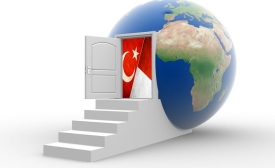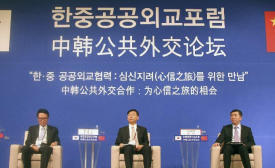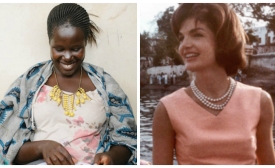soft power

The global order is changing, and a new geopolitical blueprint is emerging. CPD Research Fellow Ellen Huijgh explored the public diplomacy of new emerging powers beyond the BRICS, paying particular attention to Indonesia and Turkey.
Numerous governments and citizens throughout the world would like to see an effective counterbalance to China in East Asia. Korea, with its commitment to democracy, sophisticated economy, and long-established ties to the United States and other Western countries, is in a strong position to play this role, if it chooses to do so.

SEOUL --- At a conference here sponsored by the Korea Foundation, several dozen scholars and practitioners grappled with questions related to Korea’s global and regional diplomatic posture. My own suggestions as a conference participant centered on two questions
• How does public diplomacy relate to the strategic interests of Korea as a leader in East Asia and more specifically as a counterweight to Chinese influence?
• In what ways might new media be used to enhance Korea’s development of innovative public diplomacy programs?
She lives in post-war Uganda and used her skills to create the necklace she’s wearing from recycled paper, a traditional jewelry art form in her country. The income she earns enables her to go to school for the first time at 27 years old, along with her children. As one of the designers of the 31 Bits team, she is reaching her once out-of-reach dreams.

Appearance is powerful and fashion cannot be ignored in international relations and public diplomacy, as it is a tool of communication.
Just as in Pakistan after devastating floods and earthquakes, Thailand after the tsunami and the worst flood in a century, and Haiti after an earthquake leveled its major city, America's military is once again doing a masterful job of staging relief supplies into an area devastated by a catastrophic natural disaster. In the Philippine islands where barely a tree is left standing and as many as 10,000 are feared dead, U.S. soldiers are on the ground.
Josef Joffe is that rare European: a well-known and respected public intellectual, an academic with sinecures at prestigious universities on both sides of the Atlantic, the publisher-editor of the left-leaning German newspaper Die Zeit, and a staunch defender of the United States against reflexive and voguish European anti-Americanism.
In his memoirs, Sir John Major praised the Commonwealth as an “enchanting institution” whose biennial summits were “by far the friendliest” that a British prime minister could attend. Sadly, enchantment and affection are likely to be in short supply when the Prince of Wales opens the Commonwealth Heads of Government Meeting in Sri Lanka’s capital, Colombo, today. Instead, this occasion will be dominated by the controversy over its location.







